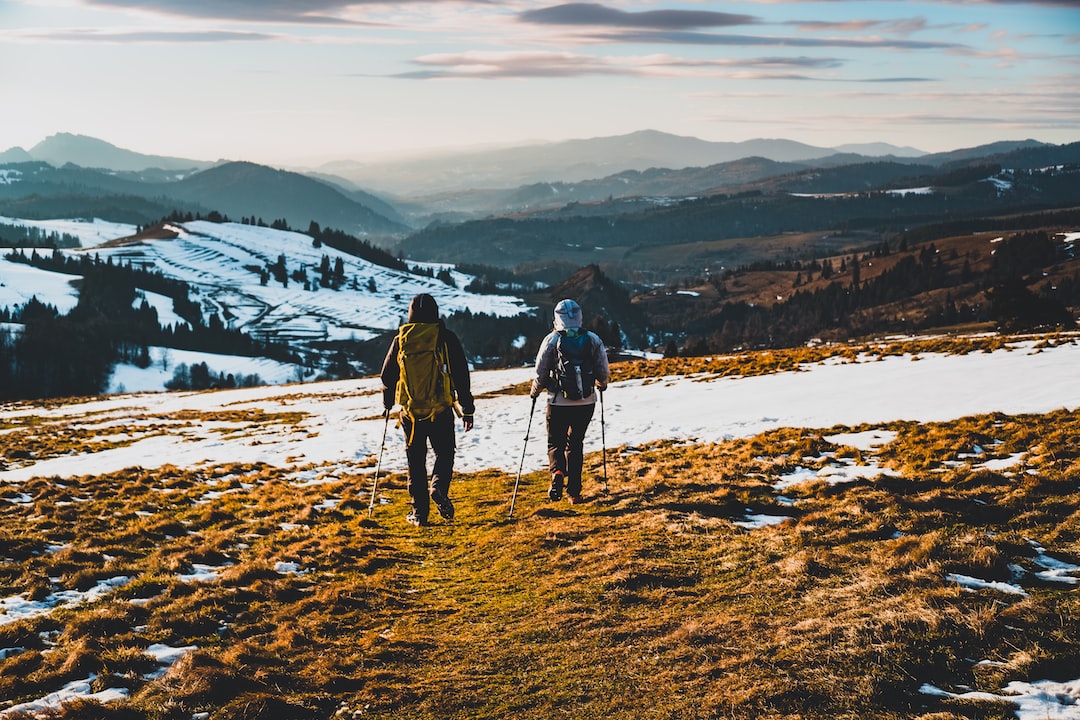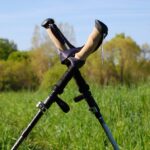Backpack hunting is an exciting, yet challenging endeavor that requires proper planning and preparation.
It involves packing the necessary gear for a successful hunt in a single backpack while also navigating treacherous terrain to find your prey.
If you dare to take on the challenge, it can be immensely gratifying – but if done incorrectly, may easily become a calamity.
In this blog post we’ll explore why backpack hunting is hard, inefficient and dangerous; how much food to bring on a packhunt; how committing to one spot is a gamble; ideal pack weight for backpacking hunts as well as difficulties of packing & finding water.
Get ready because here comes all the knowledge about backpack hunting you need.
Here is a helpful video on an example of packing for a 7-day backpack hunting trip:
What is Backpack Hunting?
Backpacking hunting is a pursuit that necessitates carrying all the essential equipment and supplies on one’s back, enabling trekking of extended distances in quest of the animal you’re after.
It requires an understanding of the environment, navigation skills, and physical endurance.
Backpacking hunters must be prepared for any situation they may encounter while out in the wilderness.
Definition of Backpack Hunting:
Backpack hunting is a form of hunting where all essential equipment and supplies are carried on one’s back instead of using vehicles or horses to transport them from place to place. This allows hunters to cover more ground than traditional methods and explore remote areas inaccessible by other means.
Benefits of Backpacking Hunting:
The primary benefit of backpack hunting is its ability to take you into places unreachable by vehicle or horseback riding. This opens up new opportunities for finding game as well as exploring untouched areas with unique scenery and wildlife viewing opportunities.
Additionally, it can provide a sense of adventure not found when relying solely on motorized transportation or animals for movement through the outdoors.
Finally, it can help build confidence in one’s outdoor skills such as navigation, tracking animals, setting up camp efficiently, etc., which will ultimately make future trips more enjoyable and successful overall.
Backpack hunting can come with its own set of difficulties, such as needing to be mindful about how much one carries and where they are going.
Weight management and route planning/navigation are two major ones that need consideration before embarking on any journey into the wilds via this method. Weight management refers to having enough food and water but not over-packing so much that you become fatigued quickly due to carrying too much weight around during your travels, which could lead to potentially dangerous situations.
Route planning/navigation requires knowledge about terrain features like rivers/creeks, trails, mountain passes, etc., so that you don’t get lost while traveling through unfamiliar territory without access points nearby.
Furthermore, depending upon location weather conditions should always be taken into account prior leaving home base because extreme temperatures can cause issues if proper precautions aren’t taken beforehand with your gear and training.
Backpack hunting is an invigorating way to bask in nature’s beauty, and with the right tools you can be prepped for a prosperous hunt. Let’s take a peek at the gear you’ll require to have an effective backpack hunt.
Necessary Gear for a Successful Backpack Hunt
Essential for a successful hunt, the right gear is key when it comes to backpack hunting. The clothing and footwear you choose should be lightweight yet durable enough to withstand the elements of nature. Layering your clothing is important as temperatures can change quickly in the wilderness.
Be sure to bring waterproof outerwear such as rain jackets and pants, along with warm base layers like long underwear or fleece tops and bottoms. Sturdy boots are also necessary for navigating rough terrain while carrying a heavy pack on your back.
Weapons and ammunition must also be considered when packing for a backpack hunt. Depending on where you’re hunting, regulations may vary regarding what type of weapon is allowed; however, most hunters prefer rifles due to their accuracy at longer distances.
When selecting ammunition, consider its weight since every ounce counts when backpacking into remote areas far from civilization.
Finally, make sure you have adequate shelter options such as tents or tarps that can fit all members of your party comfortably without adding too much bulkiness or weight to your loadout. For sustenance on the trail, opt for lightweight and calorically dense snacks; energy bars over canned soup, perhaps.
Having the right gear for your backpack hunt is essential to ensure a successful and enjoyable experience. With an understanding of the necessary equipment, you can move on to calculating the ideal pack weight that will work best for you.
Ideal Pack Weight for a Backpack Hunt
Backpacking hunting necessitates thoughtful consideration of the load you carry, for if it is too great, your mobility across terrain will be hampered; yet insufficient equipment can impede success.
If you’re carrying too much gear, you won’t be able to move quickly and efficiently through the terrain. On the other hand, if you don’t bring enough equipment with you, then you may not have what you need for a successful hunt.
Try to keep your pack weight under 1/5th of your total body weight.
Factors To Consider When Packing Your Bag:
Before packing your bag for a backpack hunt, there are several factors that should be taken into consideration.
First and foremost is the type of game that will be hunted as this will determine what type of weapons and ammunition are needed as well as any additional gear such as decoys or scent blockers.
Additionally, the terrain in which one plans on hunting should also be considered when determining how much weight can safely be carried without compromising mobility or comfort levels.
Finally, personal preferences regarding food and water storage should also play a role in deciding how much weight can comfortably be packed onto one’s back for extended periods of time while still allowing them to remain agile throughout their journey.
Once all relevant factors have been taken into consideration when planning out a backpack hunt trip, it is possible to calculate an ideal pack weight based on these considerations. This calculation takes into account body size and strength level as well as estimated travel distances between campsites/hunting spots over multiple days spent outdoors during each outing.
By thus calculating, one can guarantee that they do not strain themselves unduly while still being equipped for whatever the great outdoors may present during their excursions.
Knowing the ideal pack weight for a backpack hunt is essential to ensure you can move quickly and efficiently, while still having enough food and gear to sustain yourself. Next, let’s delve into the amount of nourishment that should be taken along for your excursion.
How Much Food to Bring on a Backpack Hunt?
When packing for a backpacking excursion, it is critical to ensure that your food supplies are sufficient in terms of caloric and nutrient content. Ensuring you have sufficient nourishment and energy for your expedition is critical to keep yourself going without deficiency or malnutrition.
Types of Food To Bring on a Hunt:
Depending on the length of your hunt, you may want to bring along different types of food that will provide both nourishment and convenience.
For shorter trips, lightweight snacks such as trail mix, jerky, nuts, dried fruit, granola bars or protein bars are great options. If you’re planning an extended stay in the wilderness then it might be wise to pack more substantial meals like freeze-dried camping meals like Peak Refules, Mountain House Meals, or MREs (Meals Ready-to-Eat).
Additionally, if hunting with friends who are also carrying their own supplies then it can be helpful to divide up meal responsibilities so everyone has access to hot meals during camp breaks.
Calorie Requirements for a Successful Hunt:
When calculating how much food you should bring on your backpack hunt it’s important that you take into account your calorie needs for each day in order maintain proper energy levels while hiking and hunting.
Generally speaking an average person requires around 2200 calories per day when engaging in moderate physical activity outdoors; however this number can vary depending on individual size/weight and activity level so it’s best consult with a dietician before embarking on any backpacking adventure.
Hunting food doesn’t have to be “healthy” but rather high in carbs and calories for energy.
With the right knowledge and preparation, packing food for a backpack hunt can be an enjoyable experience.
But, just as important is finding enough water in the wilderness to stay hydrated throughout your journey – something we will discuss next.
Difficulties of Packing and Finding Water on a Backpack Hunt?
Finding water on a backpack hunt can be one of the most difficult tasks you will face. It is essential to plan ahead and bring enough water for your trip, as well as know where to find more if needed.
Sources of Water in the Wilderness:
When looking for sources of water while backpacking, it is important to look for natural sources such as streams, lakes, rivers or ponds. If these are not available then you may have to resort to collecting rainwater or digging a hole in moist soil and waiting for it to fill up with groundwater.
Be sure that any water source you use has been properly filtered before drinking it.
Purifying Water in the Wild:
To ensure that any collected water is safe from bacteria and other contaminants, there are several methods which can be used including boiling, chemical treatments (such as iodine tablets), filtration systems or ultraviolet light purifiers.
Boiling is often considered the safest method but requires access to firewood and fuel so should only be attempted if necessary.
In order to avoid having to rely on finding natural sources of water during your backpack hunt, it is best practice to carry enough with you from home so that you do not run out unexpectedly. Make sure all containers are sealed tightly when packing them into your bag and keep an eye on how much weight they add up too – try using collapsible bottles which take up less space when empty.
Additionally, consider bringing along some electrolyte powder packets which can help replenish lost minerals after sweating throughout the day’s activities.
FAQs in Relation to Backpack Hunting
What is a hunting backpack?
A hunting backpack is an essential piece of gear for any hunter. A hunting backpack is indispensable for any hunter, providing a way to transport the essential items and equipment necessary in the wild – from bullets and grub to an emergency medical kit.
Hunting backpacks come in various sizes and styles depending on your needs; some feature pockets specifically designed for carrying firearms or bows and arrows. The right pack can make a huge difference when it comes to comfort and convenience during long days spent outdoors. With the right features and design, you’ll be able to store everything you need without having to worry about being weighed down or uncomfortable.
Can I use backpacking pack for hunting?
Yes, you can use a backpacking pack for hunting. Backpacks are designed to be lightweight and durable, making them an ideal choice for hunters who need to carry their gear over long distances. They also provide plenty of storage space and pockets for organizing all your supplies.
However, it’s important to make sure the backpack is large enough to fit all your necessary equipment such as ammunition, water bottles, food rations, etc., so that you don’t have any problems while out in the field.
What should be in a deer hunting backpack?
A deer hunting backpack should contain all the essential items needed for a successful hunt. A quality knife, first aid kit, flashlight, compass and rangefinder are must-haves. Extra ammunition, binoculars and a map of the area can be useful too. Clothing such as camouflage pants and jacket, waterproof boots and gloves will help keep you warm in cold weather.
Finally don’t forget snacks to keep your energy up throughout the day. With these items, you’ll be ready for whatever the hunt throws your way.
How big should a hunting backpack be?
The dimensions of a hunting rucksack can vary contingent on the kind of hunt and the sum of gear you plan to lug. A general suggestion is to pick a backpack with enough room for all your necessities without being too cumbersome or heavy.
A pack between 35-50 liters should be suitable for most hunts, but if you are planning an extended trip with more equipment, then look for something larger in the 50-75 liter range. Make sure it fits comfortably and securely when loaded up so you can focus on enjoying your hunt instead of worrying about your bag.
Conclusion
Backpack hunting is a great way to experience the outdoors and get closer to nature. It can be hard, inefficient, and dangerous at times but with the right gear, knowledge of pack weight and food needs it can be an enjoyable experience.
Backpack hunting requires commitment as you will have to commit to one spot for the duration of your hunt but if done correctly it can yield amazing results. So don’t forget your necessary gear when planning your next backpack hunt.



